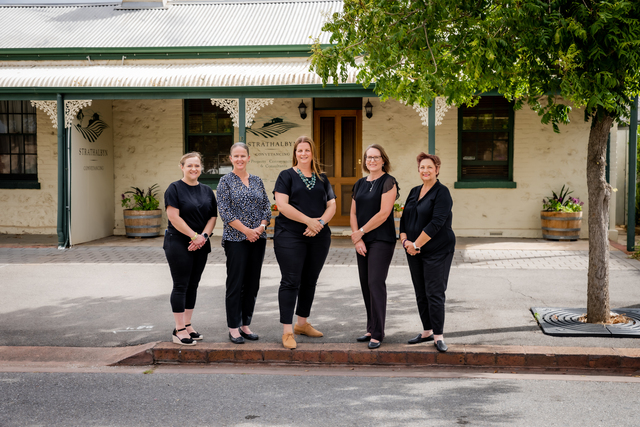Buying or selling your home is one of the largest emotional and financial decisions you can make.
After you have the sale contract and a settlement date, there’s still a lot of work that needs to be done to change ownership of a property before you can collect your keys.
The legal process of transferring property from one owner to another is important and without a good understanding of the requirements it can become a trying and time-consuming experience.
Conveyancers ensure that all your legal obligations are met, and that your rights are protected throughout the process.
What is a property settlement?
This is the legal process that transfers property from one party (person/people) to another. It is much more than just two parties agreeing on a price.
Property settlements involve: – obtaining financial information and clearance from banks or lenders; calculating stamp duty and concessions; making adjustments for council rates, water rates, and body corporate fees; checking and signing transfer documents; registering the transfer of ownership with relevant government agencies; making the final payment to the seller.
Your conveyancer completes the settlement process on your behalf and ensures that all necessary steps are completed accurately.
How long does it take to settle the sale of a house?
There are many factors that impact how long settlement can take, and the time from signing your contract to settlement can vary.
Usually, it takes between 30 and 90 days from when you sign the contract – but this time period is negotiated depending on the circumstances of the buyer and what the seller will agree to.
What can cause delays in a property settlement?
Errors: At times a bank can make an error. This may happen because of documentation mix ups or clerical errors.
Finance: Sometimes, finance that was arranged becomes unavailable or new information leads to different terms being offered.
Buyers and sellers: It is not uncommon for the buyer or seller to ask for an extended settlement period after the signing of the contract. This may be because the buyer needs extra time to arrange finance
or complete the sale of another house.
Both the buyer and seller need to agree to the new settlement date and an Addendum to the Contract should be prepared and signed.
Does property settlement include weekends?
No. Settlements can only be conducted on weekdays during normal business hours due to the availability of Land Services SA and the electronic settlement platform called PEXA.
Settlement cannot occur on Public Holidays either.
Who pays settlement fees?
Both the buyer and seller pay fees. The Settlement Statement lists all the fees payable.
How long does settlement take on the day?
Depending on how the different pieces of the settlement go, settlement on the day can take anywhere from one hour to all day.
You will get a call from your conveyancer with the good news that settlement has been completed and then you can start to move in once you receive the keys from the Real Estate Agent.
Can you move in on settlement day?
Settlement day is the day you legally become the owner of your new home. While it is technically possible to move in on settlement day, if there are any delays in the process you may not be able to be fully moved in.
What should I do the day before my settlement?
Settlement day can be stressful, so it pays be as organised as possible.
You should: • Re-confirm with your bank that you have the cleared funds available in your account.
• Approve the settlement statement from your conveyancer as quickly as possible.
• Confirm with your conveyancer to ensure that any mortgage over the property is ready to be discharged and paid out at settlement.
How long after settlement do you (as the seller) receive your money?
Settlement time may vary depending on the circumstances of the seller and buyer; however, you should expect to receive the proceeds from the sale within 24 hours of the settlement being completed. Occasionally this can differ due to Banks and Credit Unions having different processing timeframes.
What’s the difference between a Conveyancer and a Solicitor?
Conveyancers are specialists who are educated and qualified to provide professional and expert advice in relation to property law and conveyancing matters. Conveyancers do not handle other legal matters such as wills, divorces, family, or criminal law.
Why should I choose a Conveyancer?
Conveyancers are focused solely on property transactions and can provide expert advice in relation to conveyancing matters. They are your advocate and liaise with all parties to the transaction to get the answers you need.
Conveyancers are insured and have professional indemnity insurance to cover you in the unlikely event that something does go wrong.
Using a Conveyancer helps to minimise the stress of the whole process and importantly makes sure that the process is completed correctly – which will save you time, money and effort.
When should I contact a Conveyancer?
The earlier, the better. As soon as you decide to buy or sell, it makes sense to choose and consult with your Conveyancer.
The Strathalbyn Conveyancing Team are Certified Practising Conveyancers.
Our service includes perusing the Contract and Form 1 prior to signing to ensure the appropriate clauses are included for your protection and that the specified timeframes are achievable.
We provide Conveyancing Services anywhere in SA and ensure that you understand what you are signing and answer – in simple terms – any questions you may have.
If you are about to buy, sell, or transfer property in South Australia please contact Strathalbyn Coveyancing- 8536 3860, 10 Catherine Street, Strathalbyn.









